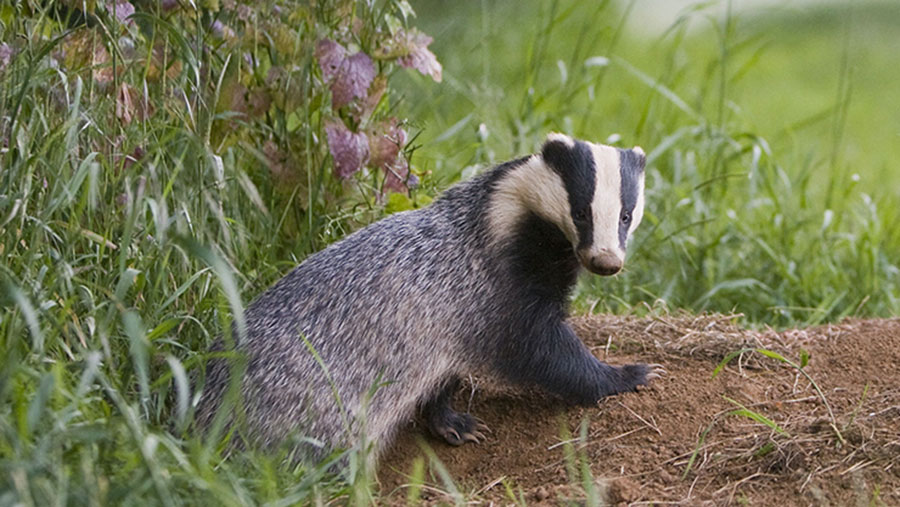Farmer groups gear up for extended badger cull
 © FLPA/REX/Shutterstock
© FLPA/REX/Shutterstock Farmer groups are preparing for a large expansion of badger culling this autumn as part of government plans to eradicate bovine TB.
Defra is expected to make an announcement on the resumption and expansion of the badger cull around mid-September.
A spokesman for Natural England said it had received 13 applications for culling licences in new areas for 2017.
See also: Farmer ‘devastated’ after TB outbreak on Isle of Skye
But she added: “I am unable to confirm any further details as Natural England is currently considering these applications, as part of the usual licensing process.
“There is no set date for when the outcome of these applications will be announced.”
Dominic Dyer, chief executive of the Badger Trust, said he expected nine new culling licences would be issued by Natural England this year in Cheshire, Devon, Dorset and Wiltshire, which would bring the total licences to 19.
This would make it the largest expansion of badger culling since the policy started in 2013 at two trial sites in Somerset and Gloucestershire with four-year licences, which will be extended for 2017.
North Dorset was issued with a culling licence in 2015, and seven new zones started culling last year in Cornwall, Dorset and Herefordshire.
In total, more than 14,800 badgers have been culled in England since 2013 at a cost of £40m to the taxpayer. But Mr Dyer said this autumn’s expansion could increase the total number to more than 25,000.
He accused the government and the farming sector of a “collective failure” to recognise the “true causes of the spread of [bovine TB]”, which he listed as the excessive movement of animals through trading, poor biosecurity and continued dependence on the unreliable tuberculin skin test.
The Somerset Badger Group said with the exception of the South Hams area, cull zones for Somerset, Devon and Cornwall would “likely become one large contiguous zone” this year.
Culling licences wait
But the NFU said removing the reservoir of disease in wildlife is an essential part of eradicating the disease in cattle.
NFU president Meurig Raymond told Farmers Weekly: “I have been around numerous shows this summer speaking to members and they are absolutely convinced that if we are going to beat this disease we need to eradicate it in wildlife.
“There is anecdotal evidence that herds in the Somerset and Gloucestershire cull zones have seen a reduction in disease since culling was introduced.
“That has given livestock farmers the determination to apply for culling licences in other areas. Many areas have reached the finishing line in terms of preparations for culling and they are awaiting decisions on licence approvals by Natural England.”
Latest Defra figures show from a 12-month period up to June 2017, nearly 40,000 cattle were slaughtered in England, Scotland and Wales under TB control licences, costing taxpayers an estimated £100m in compensation to farmers.
TB testing consultation
A government consultation is looking at the possibility of simplifying the testing regime, introducing routine six-monthly testing in high-risk areas, and reduced testing in low-risk areas.
Defra has also invited applications for groups of farmers to continue with a “supplementary badger cull” in areas of Somerset and Gloucestershire, which have now completed four-year culls.
